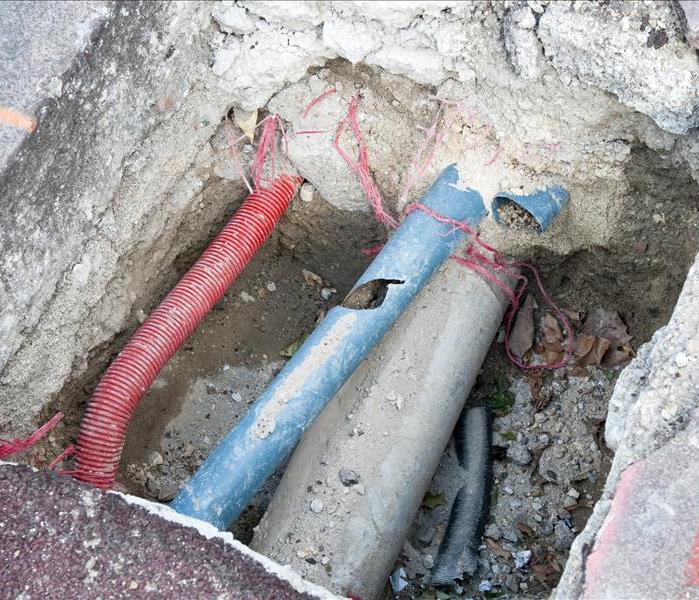4 Reasons To Replace Polybutylene Pipes
10/1/2018 (Permalink)
Polybutylene was a common pipe material from the 1970s through the mid-1990s. Poly pipes were preferred due to their affordability and ease of installation. Over time, however, antibacterial treatments such as chlorine and other oxidants cause this material to break down. Here are four reasons to replace poly pipes with polyvinyl chloride or chlorinated polyvinyl chloride.
- Most building codes forbid the installation of poly pipes. If you own commercial property in North America, there is a good chance that building codes in your region bar the installation of poly pipes. Choose another material such as PVC or CPVC to make sure the plumbing in your building is up to code.
- Poly pipes cannot be repaired. The Quest fittings designed for polybutylene pipes are no longer manufactured, as this pipe material is not considered safe. You may be able to use push fit or transition fittings for copper, CPVC, or PEX pipes with the same outside diameter, but you will not be able to repair poly pipes with the connectors designed for use with this piping material.
- Water treatment chemicals degrade poly pipes. Chlorine and other antibacterial treatments may wear down poly pipes over time. This can cause chemicals to leach out of the pipes into the water supply to your building and may also lead to more frequent leaks.
- Poly pipes may introduce chemicals into water. As suggested above, oxidants are known to make this material brittle. As these pipes crack or flake and become vulnerable at fittings, this may expose occupants of your building to chemicals.
It is a good idea to replace polybutylene pipes in your commercial property with new plumbing materials to prevent breaks, contamination, degrading, and leaks. If your property in Lakewood,NY sustains damage due to a pipe burst, leak, or from any other source, contact commercial water damage restoration specialists.






 24/7 Emergency Service
24/7 Emergency Service
